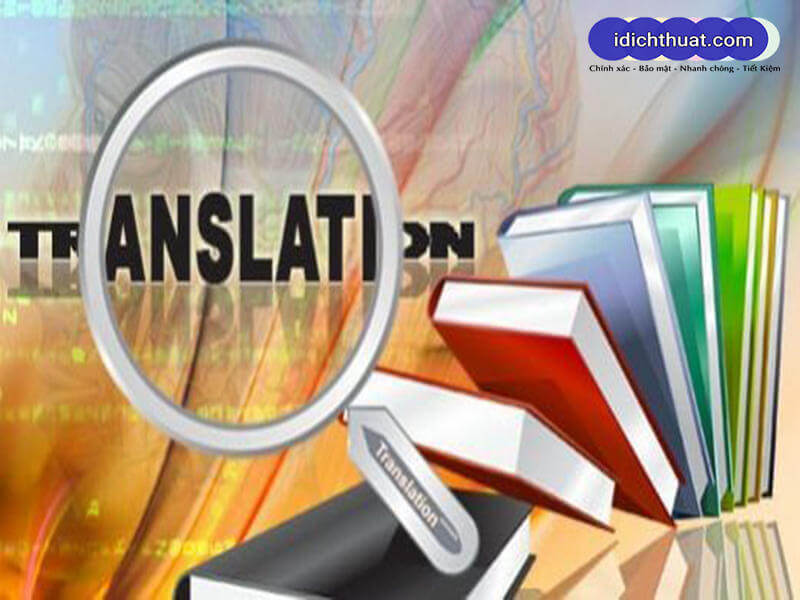Specialized Translation is a field of translation that focuses on documents and texts within a specific field of expertise. This requires the translator to have extensive expertise in that field.
This post includes partial results from a survey we conducted in April 4. The survey includes questions about rates and areas of expertise. We want to get a complete picture of the translation industry worldwide. So we collected 2018 answers.
Respondents included translators and interpreters from every continent, field of expertise and level of experience. In today's article, we cover the most popular areas of specialization in the translation industry.

Where is the origin of the respondent?
Of the 401 linguists who filled out the survey, the majority lived in Europe (55%). Up to 18% of respondents are from South America and 13% are from North America. Regarding the rest of the continents, 3% of respondents live in Central America. Furthermore, 4% of respondents are from Africa, 6% from Asia and 1% from Oceania.
What are the most popular majors?
Technical translation seems to be the most popular among different types of specialized translation such as training and manual translation. In addition, any text dealing with the practical application of scientific and technological information is considered technical.
Technical translation involves the use of a “control language” for which machine translation has been shown to perform well. However, our survey proves that human technical translators are not going anywhere! In contrast, the results show that the field appears to have more work. Therefore, most of the respondents chose technical translation as their specialty.

Which field has few specialized translators?
Areas with few specialized translators are diverse, including literature, tourism, transcription, audiovisual/entertainment and video games. However, these specialties do not have as many linguists as the fields of technical translation, legal, or marketing.
What is worth pondering?
We quote Charles Martin in his Professional Translation article:
"Everyone in the translation industry seems to agree that translators today must specialize. There are mainly two reasons why this demand has been increasing in recent years.
Firstly, it is an exponential expansion of knowledge to know about any particular topic and many new topics to know. No one translator can have the necessary knowledge to translate all types of documents. Therefore, you should work alone and within a reasonable amount of time.

Second, the Internet is why specialization is increasingly needed. Because the Internet helps translators deliver translations quickly to customers anywhere in the world. They can promote special skills and services beyond the local market.
What are the necessary skills of a specialized translator?
Language skills
- Proficient in both languages: Translators need to be able to understand and express information accurately, fluently and naturally in both the source and target languages.
- Professional knowledge in the field of translation: Master technical terminology, writing style and conventions in the field of translation.
- Ability to look up and research: Know how to use reputable reference sources to find information and solve language problems.
Translation skills
- Text analysis capabilities: Understand the meaning and purpose of the source text to be able to accurately convey information into the target language.
- Good writing skills: Express the target language fluently, coherently and easily.
- Ability to handle different text formats: Can translate documents in many different formats such as text, PDF, images, etc
Soft skills
- Good communication skill: Know how to listen, discuss and solve problems with customers and colleagues.
- Organizational and time management skills: Ability to arrange work properly to ensure progress and quality of translation.
- Hardworking, meticulous and careful: Always pay attention to details to ensure accurate and error-free translations.
- Highly adaptable: Able to flexibly work with many different types of documents, customers and requests.
In addition to the above skills, a specialized translator is also needed Passionate about languages and cultures, Always update new knowledge , and non-stop learning to improve skills.
Translation quality assurance process
Select a translator
- Choose a translator with professional qualifications appropriate to the field of translation.
- Translators must have translation experience in their field of expertise.
- Translators must be able to use the source and target languages fluently.
Project management
- Assign projects to appropriate translators.
- Provide the translator with all necessary documents and information.
- Monitor project progress and ensure on-time completion.
Translation
- Translators must accurately translate the content of the original document.
- Translators must use the target language in a natural and understandable way.
- Translators must ensure that the translation is consistent with local culture and customs.
Proofreading
- Another editor will proofread the translation to ensure quality.
- Editors will check for spelling, grammar and translation errors.
- The editor will ensure the translation matches the style and tone of the original document.
CHeck quality
- A native language expert will check the quality of the translation.
- A native language expert will ensure the translation is accurate and easy to understand.
- The native language expert will suggest necessary corrections.
Approve
- After completing the above steps, the translation will be approved and sent to the customer.
Specialized translation support tools
Translation software (CAT)
- SDL Trados Studio: The most popular software, supporting many features such as project management, creating translation memories, quality checking.
- MemoQ: Trados Studio alternative with an intuitive interface and many automation features.
- Wordfast: The right choice for smaller projects, easy to use and affordable.
Specialized dictionary
- TermWiki: Provides a free repository of specialized terminology in a variety of fields.
- Memsource: Online translation platform that integrates specialized dictionaries for many fields.
Other support tools
- Google translate: Free online translation tool that supports multiple languages and can translate documents.
- DeepL Translate: The translation tool uses artificial intelligence, providing higher quality translations than Google Translate.
- Grammarly: Grammar and spelling checking tool helps improve translation quality.
Reference sources
- Websites of translation organizations: American Translation Association (ATA), European Translation Association (EMT), etc
- Blogs and forums about translation: Share the experience and knowledge of translators.
- Books and courses on translation: Improve skills and expertise for translators.
Some common mistakes in specialized translation and how to avoid them
Specialized translation is a field that requires a high level of expertise and meticulous attention to detail. However, there are still some common mistakes that translators can make. Here are some common mistakes and how to avoid them:
Wrong translation of technical terms
- Reason: Lack of knowledge of the subject area or failure to use appropriate references.
- How to avoid:
- Look up technical terms in specialized dictionaries or other reputable sources.
- Consult experts in relevant fields.
- Use specialized translation software.
Wrong translation of grammar and sentence structure
- Reason: Misunderstanding the grammar of the source or target language or not having good grammar knowledge.
- How to avoid
- Master the grammar of both languages.
- Refer to grammar documents or use grammar checking software.
- Read the translation carefully before sending it to customers.
Translation is not literal
- Reason: Translate each word mechanically, without understanding the context or meaning of the original text.
- How to avoid
- Read the original text carefully and grasp the overall meaning.
- Translate according to appropriate context and style.
- Use equivalent words in the target language.
Translation is not culturally appropriate
- Reason: Lack of understanding of the culture of the target language country.
- How to avoid
- Learn about the culture of the target language country.
- Use words and expressions appropriate to the local culture.
- Avoid using words that could be misleading or offensive.
Spelling errors and typographical errors
- Reason: Being negligent in the translation process or not carefully checking the translation before sending it to the customer.
- How to avoid
- Be careful and meticulous in the translation process.
- Read the translation carefully before sending it to customers.
- Use spell checking and typo checking software.
Thereby, the global site has made it much easier for translators to specialize. Furthermore, by putting a wealth of information at their disposal, it helped them to venture into new and more specialized fields. But the Internet has also increased competition helping those with translated documents find someone who can meet their specific needs or prices."
Most viewed articles about share translation experience:
- Is a Translation Degree Really Necessary
- What to Consider When Hiring a Freelance or Internal Translator?
- Historical Achievements of Translators and Interpreters

Nguyen Trung Khang - Talented interpreter and translator, passionate about translation
Nguyen Trung Khang is a talented interpreter and translator, with many years of experience in the field of translation and linguistics. He graduated from Ho Chi Minh City University of Education, majoring in Linguistics in 2015.
After graduating, Mr. Khang participated in a professional interpretation and interpretation training course at the University of Foreign Languages - Hanoi National University. He achieved a high-level certificate in interpreting and interpreting, and was also awarded a master's degree in linguistics.